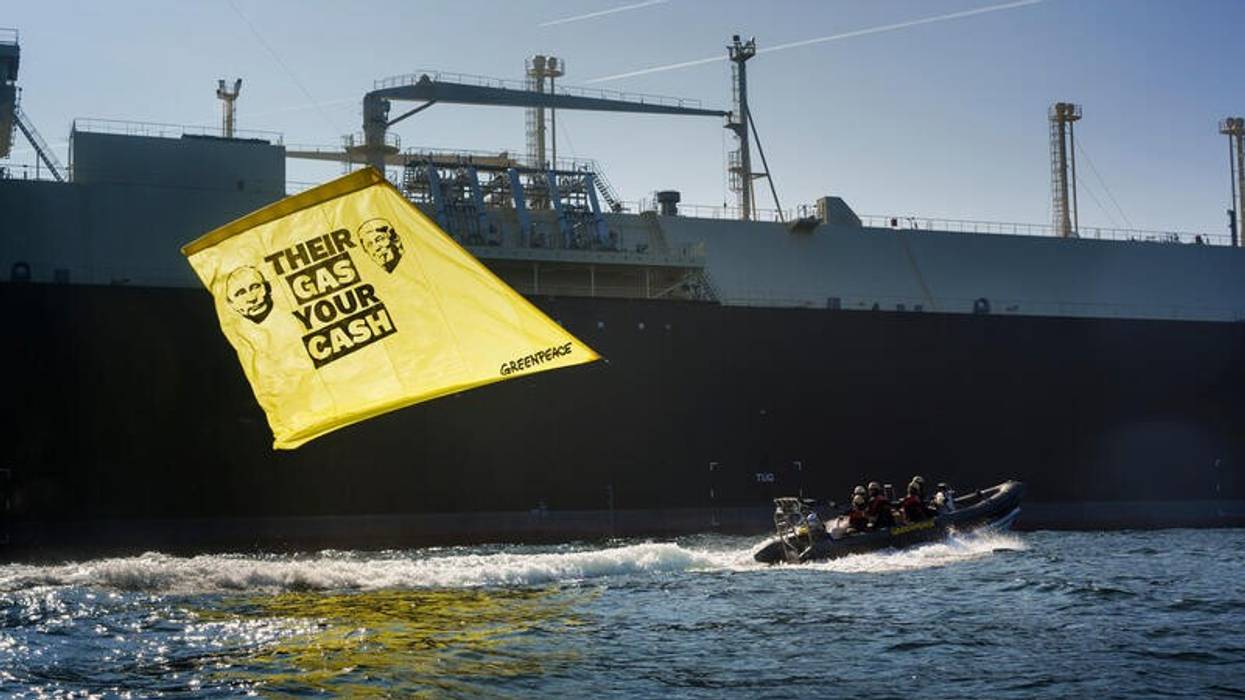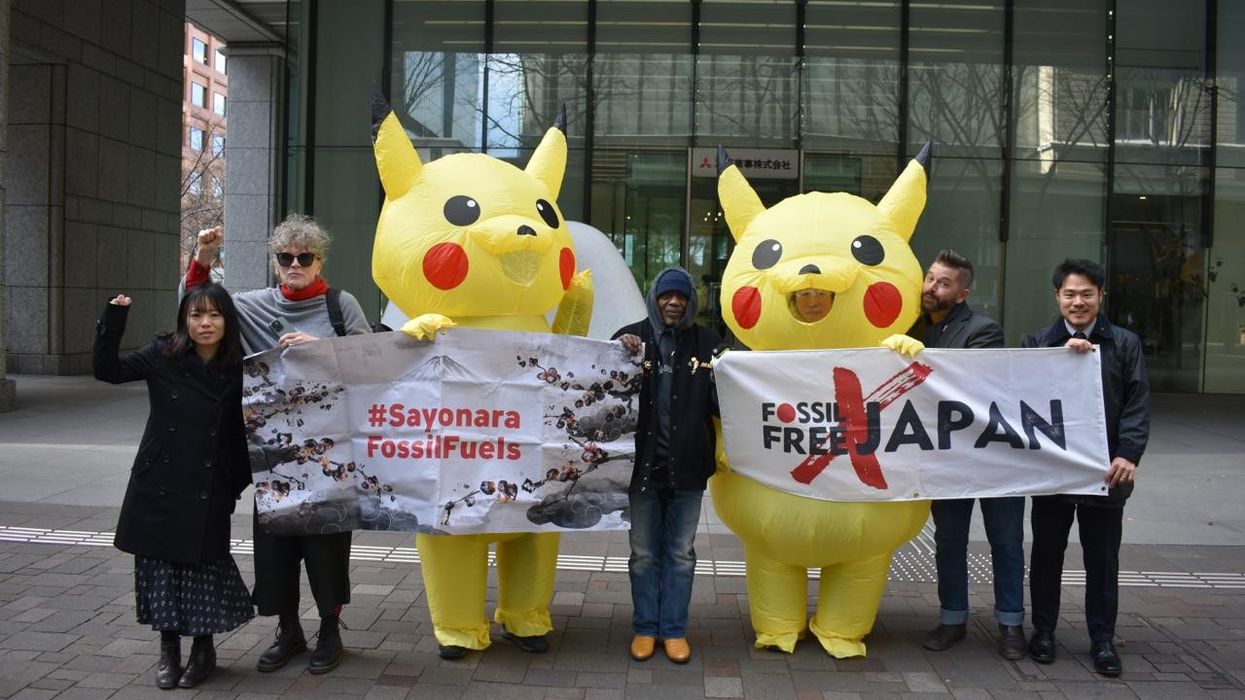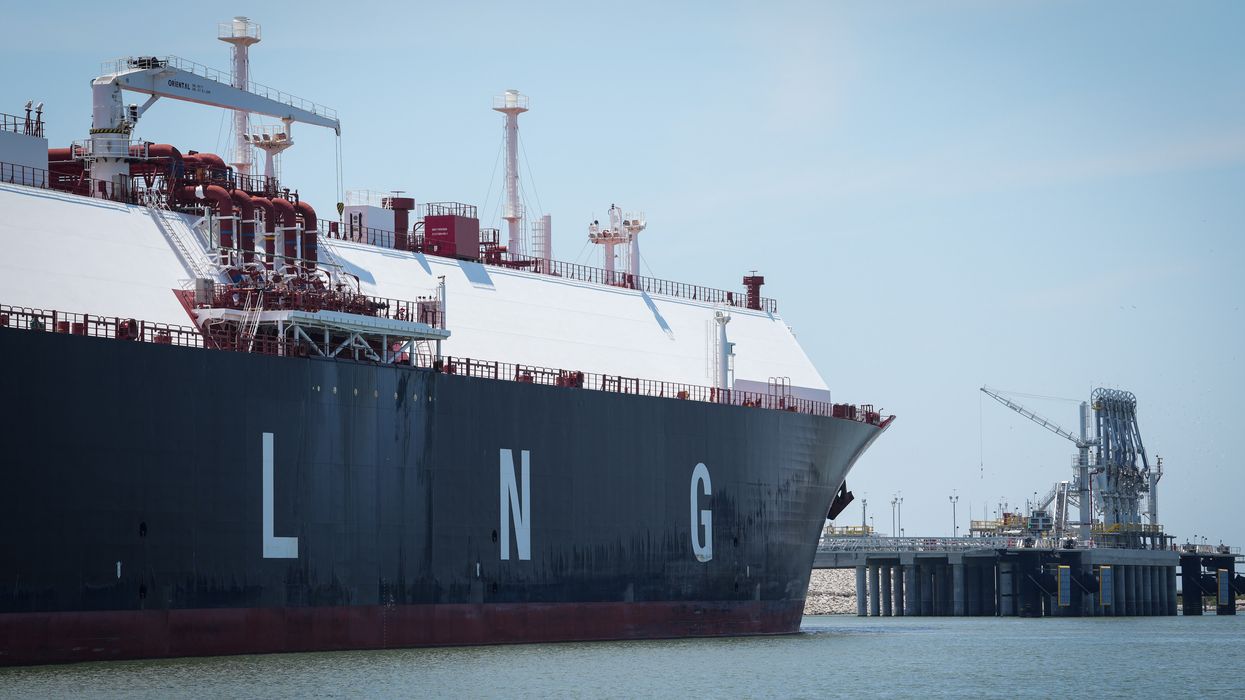We are part of a delegation of frontline residents from the U.S. Gulf South traveling to Japan to confront the financial institutions bankrolling liquefied natural gas (LNG) expansion in their communities. Our mission comes at a critical moment, as Japanese banks line up to expand terminals like Cameron LNG in Louisiana.
Japanese leaders need to see our faces. They need to understand that when they sign LNG financing agreements, they're signing away our children's health, our neighborhoods' safety, and our planet's future.
The evidence we bring is compelling and direct. I, Sharon Wilson, spent 12 years in the oil industry before becoming an environmental investigator for Oilfield Witness. Using specialized optical gas imaging cameras, I've documented methane releases from Japanese-financed gas and LNG facilities. "If only people could see what's here, smell the air, drink the water, visualize the emissions, this wouldn't be happening," I can say with certainty. "The public would not stand for it."
Others, like Roishetta Ozane, founder of Louisiana's Vessel Project and a Black mother living in Sulphur, could not be with us in person but are with us in spirit: The journey to Japan is deeply personal. "My children face severe health conditions caused by pollution the oil and gas industry unleashes into our air and water," she says. "We cannot allow our communities to bear the burden of fossil fuel racism any longer."
Japanese institutions have emerged as the leading financiers of U.S. LNG export infrastructure. Private banks like MUFG are backing new projects like Rio Grande LNG near Port Isabel, Texas, while companies like Mitsui continue acquiring Texas gas fields—even as research shows exported LNG has a 33% greater climate impact than coal.
The Japanese government is the largest public financier of U.S. LNG. Japanese private banks MUFG, Mizuho, and SMBC are the top three private financiers of U.S. LNG, providing over $35 billion. Japanese institutions, such as the Nippon Export and Investment Insurance, are considering providing financing for the expansion of the Cameron LNG export terminal, while Japanese companies JERA and INPEX have signed offtake contracts for the Calcasieu Pass 2 project.
For us, this trip represents more than just advocacy—it's about bringing the reality of our communities directly to those making decisions half a world away. Japanese leaders need to see our faces. They need to understand that when they sign LNG financing agreements, they're signing away our children's health, our neighborhoods' safety, and our planet's future.
Our timing is strategic, coming just after Trump advisers signed an executive order to restart LNG export approvals—even as Japan positions itself as a clean energy leader in Asia while simultaneously pushing for expanded methane gas infrastructure across the region. There's no such thing as clean gas. Methane is intentionally released and blasted into our atmosphere from the moment a hole is drilled into the ground. This isn't about leaks—it's about a fundamentally dirty industry that cannot operate without massive pollution. And now, with Trump's team plotting to restart permits, our communities face even greater threats.
As we meet with Japanese financial institutions and policymakers, we carry a clear message: The human cost of Japan's LNG investments can no longer be ignored. Despite the threat of a fossil fuel-friendly administration, we have proven our resilience. We stopped LNG projects before, and we will do it again. This time, we're taking our fight directly to the source of the money. Human rights abuses are being committed in our Gulf South communities in the United States—and Japanese money is making it possible. We will not stop fighting until our communities are safe from harm.




